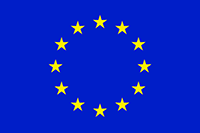Interview with Irene Bianchi: highlights of the MESOC workshop
Following the recent success of the MESOC International Workshop, a journalist from MESOC partner Worldcrunch decided to do a quick interview with fellow consortium member Irene Bianchi, an Urban Planning Researcher from Polimi to further discuss the ideas shared on March 3rd and 4th, 2021.
What were three key takeaways from the International Workshop - Societal Impacts of Culture: A Transitional Perspective?
1 – In his keynote speech, Prof. Derk Loorbach explained what it means to adopt a “transition perspective” when critically analysing and interpreting how complex systems (cities, in particular) change over time. His inspiring talk provided insights that are relevant to the conceptual framing of the MESOC research questions. Also, I think Prof. Loorbach’s final call for “reimagination” to support societal transitions was inspirational for all of us.
2 – Another key moment was the presentation of UNESCO Culture|2030 indicators by Louise Haxthausen, as part of the Round Table “Measuring the social dimension of culture: Methodological challenges”. It was really interesting to see the evaluation scheme developed to assess the progress of culture’s enabling contribution to the implementation of sustainable development goals.
3 – I also want to highlight the discussion about the role of technology for policy evaluation and detecting socially relevant impacts and effects (Round Table “What AI can tell us and what are the right questions”). The keynote speech by Prof. Pier Luigi Sacco and the discussion that followed focused on complementary capacities of Artificial Intelligence, which can support the identification of relevant social impact.
What one piece of information that came from the conference would you like to share with those who couldn’t attend?
To capture the role of cultural policies as drivers of change in different social domains, it is crucial to look beyond policy implementation and consider the effects of cultural strategies and initiatives on institutions and (urban) structures, as well as on practices, routines and behaviours. As Prof. Franco Bianchini pointed out, this requires appraising the legacy of cultural policies with a context-sensitive gaze. From this perspective, it is crucial to overcome a silo mentality, embrace complexity, and look at how transformative dynamics are shaped by different actors that contribute to the generation of social impacts and their rooting within specific contexts.
Were there any subjects/themes that overlapped? If so, how did this add to the fruitfulness of the discussions?
The thematic sessions all addressed the issue of social relevance, adopting different ‘lenses’: why is it so important to capture the societal impacts of cultural policies? What makes a cultural policy “socially relevant”? What factors enable the generation of social impacts? How can socially relevant effects be detected? How can they be measured? The diversity of viewpoints added to the discussion’s richness and showed that time is now ripe for developing flexible analytical and evaluation tools.
How well did the international guests provide inputs to the validation of MESOC conceptual and analytical approach?
Their contributions went far beyond the validation of MESOC conceptual and analytical approach. The Project is currently in an exploration phase, and our guests helped us to look at the “big picture” within which MESOC research questions and activities are framed. It was a great learning opportunity for us, and we will treasure all the insights into our future activities.
What was your personal highlight of the day?
As an urban planning researcher, I particularly enjoyed the ‘city perspective’ discussed in the first Roundtable. The overview of relevant cultural initiatives developed by some European cities presented by Julie Hervé, for instance, was really effective in connecting MESOC’ big questions’ with specific, local experiences. Her insights and the whole discussion of Roundtable on “cities and cultural transition” will also help us reflect on the activities we are carrying out with MESOC Pilot cities.


